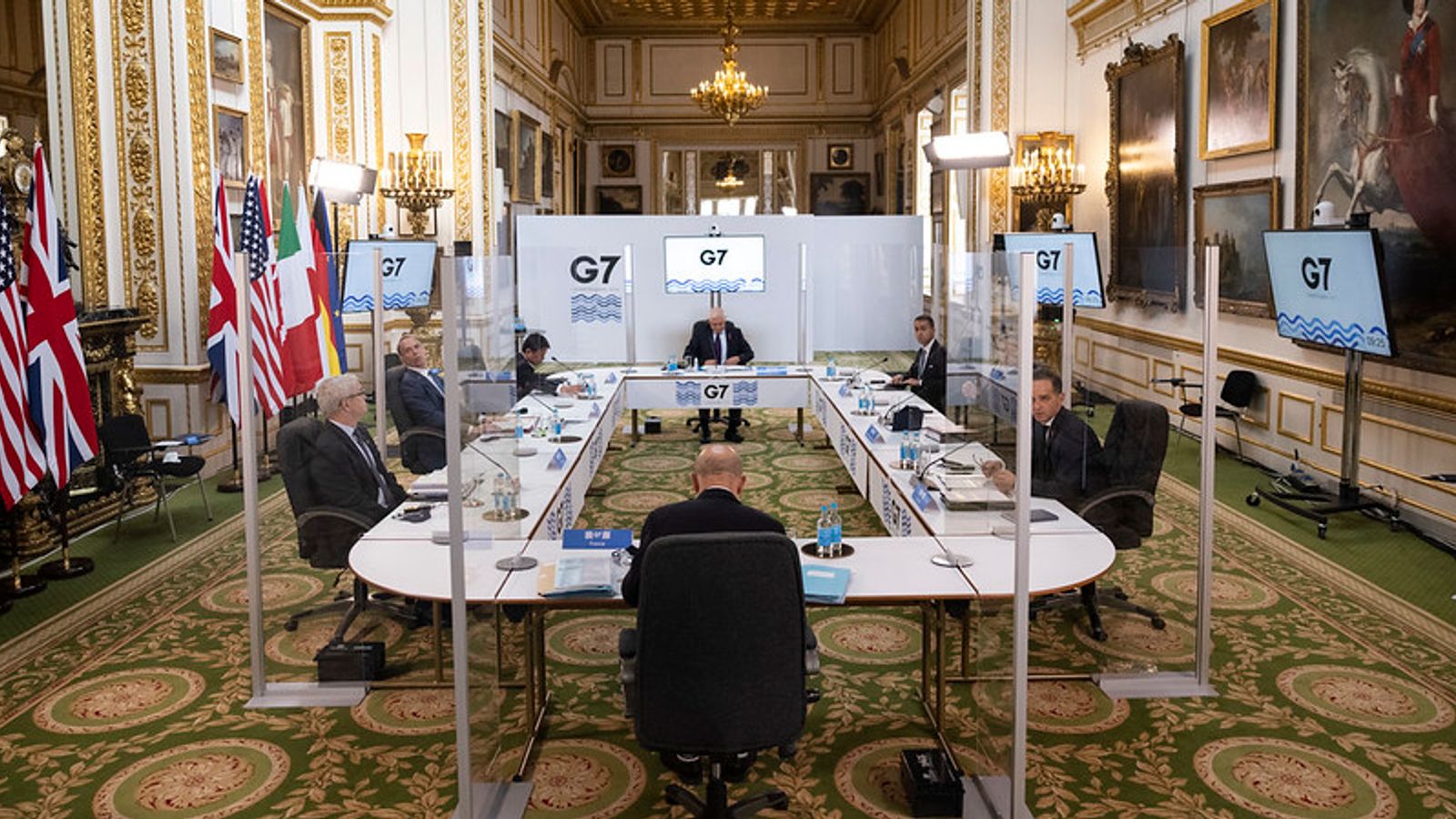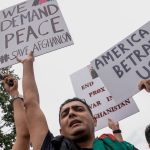G7 foreign ministers have hit out at China and Russia – but failed to establish any concrete actions against them.
Following two days of meetings in London, the seven nations said China, Russia and the COVID-19 pandemic are the world’s biggest current threats.
In a 12,400-word communique, the foreign ministers said Russia was trying to undermine democracies and threaten Ukraine, while China was guilty of human rights abuses and of using its economic power to bully others.
However, there was little in the communique that would cause undue concern for either Chinese President Xi Jinping or Russian President Vladimir Putin.
Collective efforts would be bolstered to stop China’s “coercive economic policies” and to counter Russian disinformation, the ministers said in a mission to present the West as a larger alliance than just the core G7 countries of Canada, France, Germany, Italy, Japan, the UK and the US.
The G7 ministers said they supported Taiwan’s participation in World Health Organisation (WHO) forums and the World Health Assembly, and said they were concerned about “any unilateral actions that could escalate tensions” in the Taiwan Strait.
China sees Taiwan as its own territory and refuses to acknowledge any official Taiwanese representation on an international level.
The ministers said they were also supportive of Ukraine – but provided no actions to worry Moscow.
“We are deeply concerned that the negative pattern of Russia’s irresponsible and destabilising behaviour continues,” they said.
“This includes the large build-up of Russian military forces on Ukraine’s borders and in illegally-annexed Crimea, its malign activities aimed at undermining other countries’ democratic systems, its malicious cyber activity, and use of
disinformation.”
Please use Chrome browser for a more accessible video player
British Foreign Secretary Dominic Raab said: “I think (China is) more likely to need to, rather than react in anger, it is more likely going to need to take a look in the mirror and understand that it needs to take into account this growing body of opinion, that thinks these basic international rules have got to be adhered to.”
Moscow denies having meddled with any other countries and says the West is gripped by anti-Russian hysteria.
China says the West is a bully and its leaders are of a post-imperial mindset in which they think they can act like global policemen.
The West, which is collectively larger than China and Russia, has so far failed to come up with an effective response to either country.
The other major issue the G7 identified, ahead of the full summit in Cornwall in June, was COVID-19 vaccine inequity, with ministers pledging to work with industry to expand production of affordable vaccines.
However, they did not call for a waiver of intellectual property rights of major pharmaceutical firms, which some nations have called for to make it easier to distribute the vaccines quicker.
They instead said they would work towards “promoting partnerships between companies and encouraging voluntary licencing and tech agreement on mutually agreed terms”.
Please use Chrome browser for a more accessible video player
The ministers also agreed:
• To expand and strengthen the rapid response mechanism the G7 uses to fight threats to democracy, such as disinformation, surveillance and malicious cyber activities
• To commit to reinforcing the central role of the WHO when it comes to global health
• They are concerned about actions by states to intentionally disrupt their citizens’ access to information and data online
• They are “seriously concerned” about the situation in and around the East and South China Sea
• “Arbitrary arrests and detentions” are contrary to international human rights law
• To co-operate to prevent foreign aid from supporting military-led regimes
• To reiterate their “readiness” to take further steps if the Myanmar military does not “reverse its course”.






















